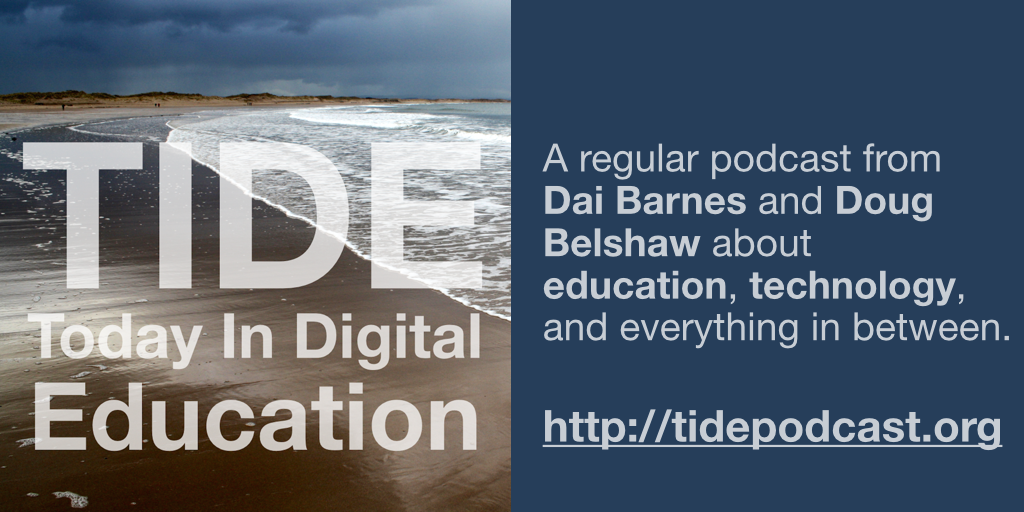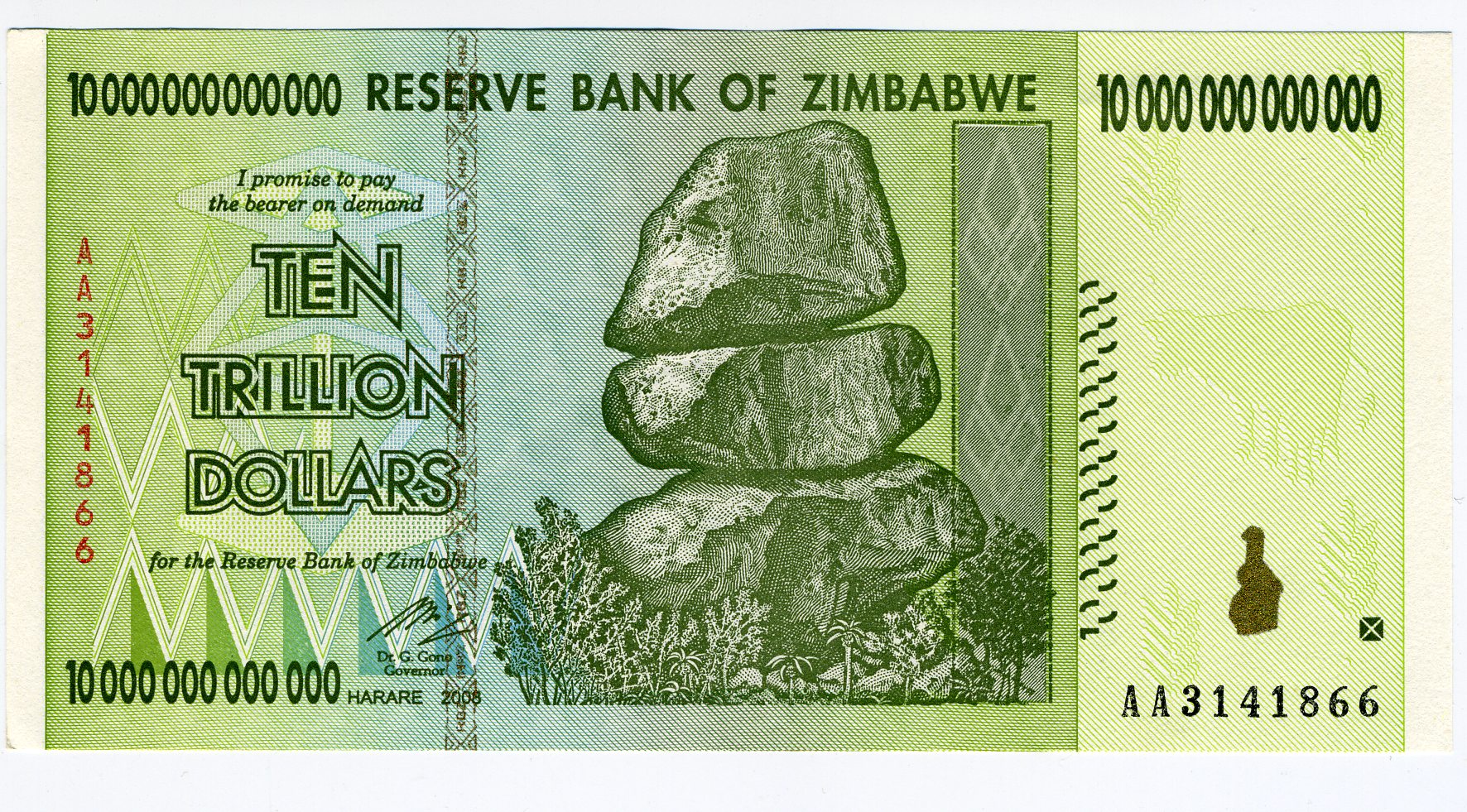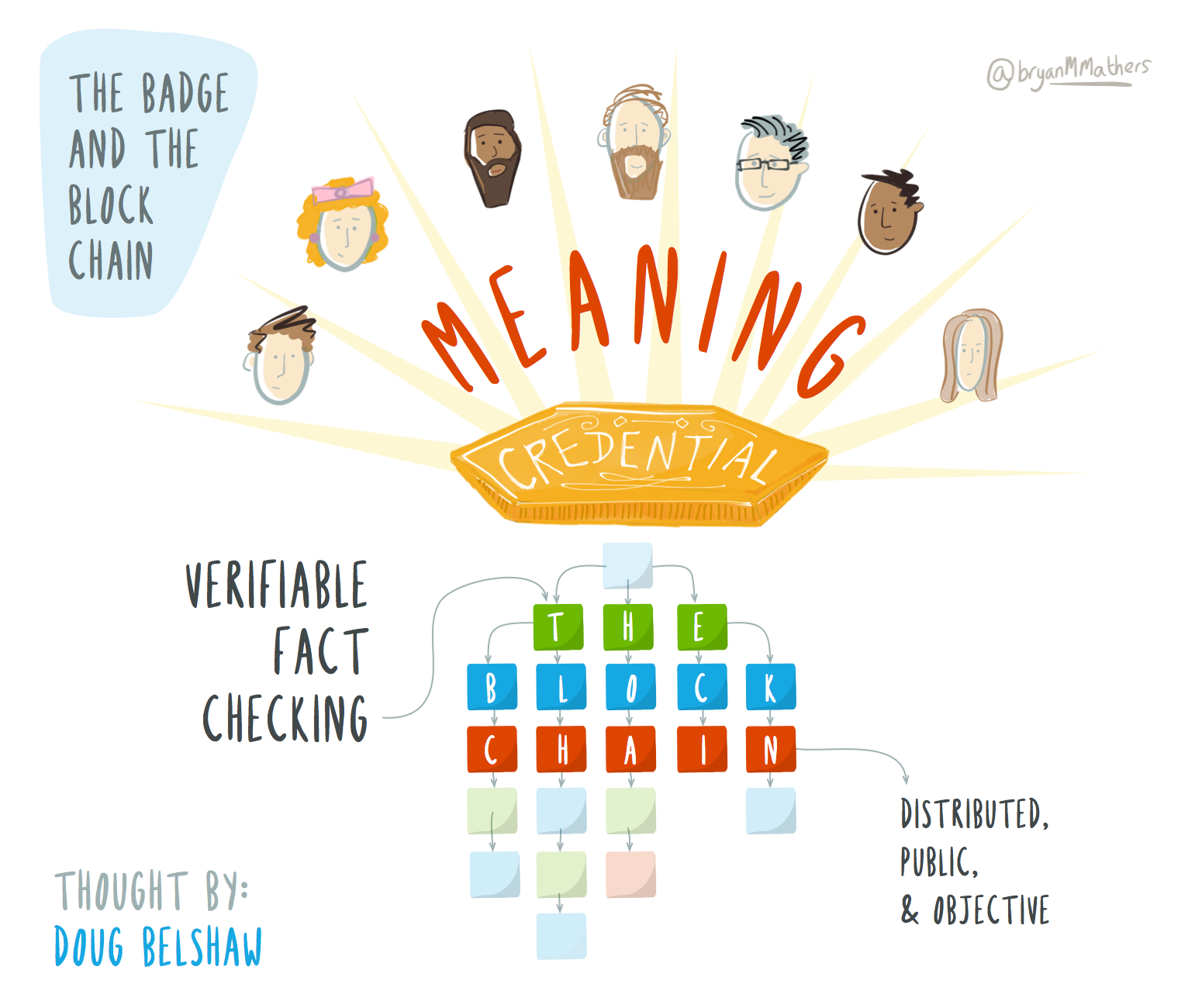
Earlier this year, my good friend Dai Barnes and I decided to start podcasting again. I’m delighted to say that, even after a planned summer break, we’ve continued to meet on a weekly basis to record episodes of Today In Digital Education (TIDE).
It’s purposely long-form, coming in at between an hour and an hour and a half. That gives us an opportunity to really dig into some of the things that have come onto our radar around education, technology, and everything in between.
Along with putting together my weekly newsletter, I find recording TIDE with Dai a wonderful opportunity to think out loud. It looks like hundreds of people agree with us, people who subscribe via their favourite podcast app, including iTunes or Soundcloud.
Why not check out the latest episode? For those reading this on my blog, I’ve embedded it below. If there’s nothing there because you’re reading this via RSS/email, you’ll need to click here.
Have a listen and tell us what you think! We’re always open to feedback. 🙂

This week I’ve been:
- Sending out Issue #187 of my newsletter, Doug Belshaw’s Thought Shrapnel. Many thanks to Makers Academy for sponsoring September’s issues. I’m still looking for a sponsor for October onwards.
- Releasing Episode 23 (‘Incompetent Edtech’) of the Today In Digital Education podcast that I record regularly with Dai Barnes. We discussed incompetent male leaders, ad blocking, cars that spy on teenagers, Amazon’s new Fire tablet, having a domain of one’s own, caffeine naps, and more!
- Teaching the second session of Computing Club at my kids’ school. They learned what their favourite colour is in HTML hex codes and we did a bit more with Markdown.
- Starting to put together a proposal around an Open Badges workshop for ISTE 2016 with Noah Geisel and Bryan Mathers.
- Travelling to and from London for face-to-face work with City & Guilds. I participated in a UK Products & Services conference on Thursday, and stayed at Citadines Barbican (as it’s opposite the swimming pool I go to).
- Suffering from a migraine. I think it was the fluorescent lights I was under all day at the conference. No aura (‘flashing lights’) thankfully, just fuzziness and head pain.
- Buying a Zimbabwean 10 trillion dollar note from the period of hyperinflation in the late 1990s. Inspired by seeing Shed Simove in action. I used to be an examiner for the History AS level syllabus on Weimar Germany when I was a teacher, so I find this stuff fascinating.
- Updating the Open Badges 101 community course that Bryan Mathers on which Bryan Mathers and I are co-leading work. The second module is now finished in draft form. We sent out an update to those who have opted-in via the site.
- Shifting from using Known to using Pinboard.in for bookmarking, as I explained briefly here.
- Negotiating a new contract with City & Guilds. More on that means for other clients soon (hint: it works well for everyone!)
- Writing about A Decentralized System for Education and Assessment.
Next week I’m in London on Tuesday and Wednesday and working from home for the rest of the week. It’s the time of the year when I have to get my Lumie Arabica SAD light out. And yes, they work even if you’re skeptical about their efficacy (as I was!)

A few months ago I wrote a post for DMLcentral entitled Peering Deep into Future of Educational Credentialing. In it, I was looking at the possibilities of the blockchain technology that underpins Bitcoin.
More recently, I’ve been looking at Ethereum, ‘crypto-fuel’ that can create new, autonomous systems and so I asked on Twitter:
I looked further into the website Gordon suggested: A Decentralized System for Education and Assessment. It’s an interesting, if slightly technocratic and techno-solutionist, read. Here’s a flavour:
The long term goal is the foundation of a fair, just, and meritocratic society, in which individuals, regardless of personal factors, have the freedom to learn and grow with each other, judged solely on individual achievements. The society would function on a ruleset unalterable by any malicious centralized power, categorizing the skillsets of each individual and giving others the information necessary to place those individuals within society. This provides the basis for a society based on action and fact, with each individual serving their best role in the larger whole.
I emailed Jared, the guy behind the site asking how I could help (I’d already submitted a pull request to make a minor update to the site). He replied that the work “is still very preliminary” with the two big decisions currently being:
- What kind of channel to set up for primary communication
- Which platform to build on (Ethereum, Eris Stack, Forking bitcoin or tendermint?, etc)
He’s open to other ideas, too, with the best place to discuss all this on this subreddit. I’ve closed comments here to encourage you to jump into the conversation there.
Image CC BY-NC-SA Bryan Mathers



